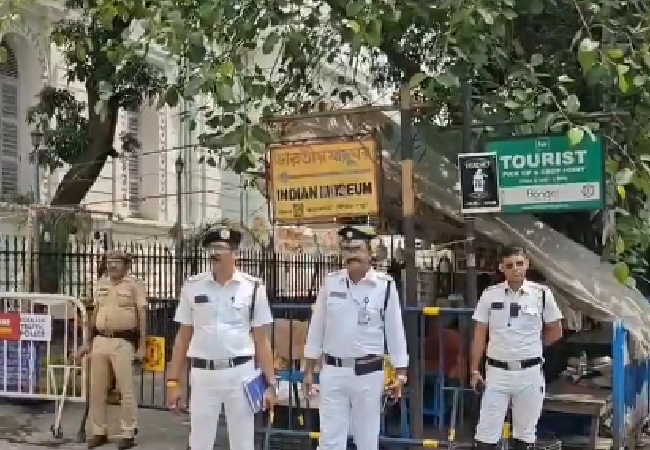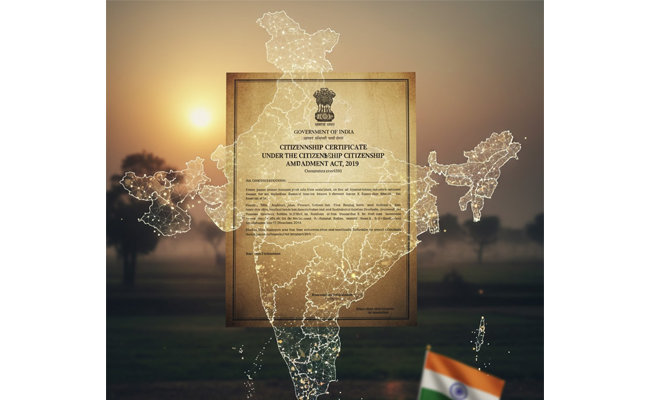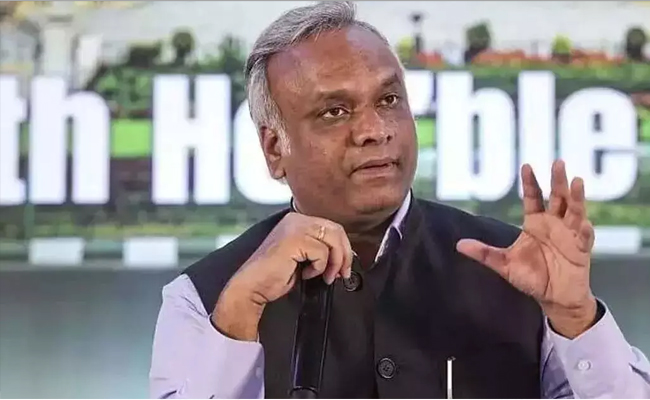Kolkata(PTI): A bomb threat to the Indian Museum in Kolkata, which triggered a panic on Tuesday and prompted security personnel to launch a search operation, turned out to be a hoax, officials said.
The Central Industrial Security Force (CISF), responsible for the security of the more than 200-year-old museum, had informed the New Market police station, following which a thorough search was initiated.
It was closed to visitors until a clearance was received from the police, sources said.
According to the officials, the museum authorities received an email which claimed that bombs would be planted in the museum on Tuesday. The message, however, did not specify the exact location.
"There are over 51 rooms in the museum, which are being searched by security personnel. So far, no suspicious object has been found," a police officer said.
The footpath of the Indian Museum on Jawaharlal Nehru Road has been cordoned off with guardrails.
The museum director, A D Choudhury, who is currently in Delhi, told PTI over the phone, "I have heard that an email had been sent. The CISF is conducting a search operation along with police."
To a question whether anything was found so far, he replied "I haven't got any such update."
To another query on whether it could have been a fool's day prank, he said, "Maybe, but we have to treat every such message seriously and inform the security agencies promptly."
Founded in 1814, the museum, which is India’s “oldest and largest” such facility, is located in the heart of Kolkata. It is an autonomous organisation under the administrative control of the Union Ministry of Culture.
Kolkata # Notice put up by the Indian Museum Authority. https://t.co/ZnJCOXgnO9 pic.twitter.com/YTCXbAWEsU
— Syeda Shabana (@JournoShabana) April 1, 2025
Let the Truth be known. If you read VB and like VB, please be a VB Supporter and Help us deliver the Truth to one and all.
Dehradun(PTI): After undergoing rigorous training at the Indian Military Academy (IMA) in Dehradun, 491 cadets participated in a grand Passing Out Parade on Saturday and will now be commissioned as officers in the Indian Army.
The spectacular parade, held at the historic Drill Square in front of the academy's Chatwood Building, was reviewed by Army Chief General Upendra Dwivedi, who served as the reviewing officer.
Along with 491 Indian cadets, 34 foreign cadets from 14 friendly countries also participated in the Autumn Term 2025 Passing Out Parade.
A total of 525 officer cadets from the 157th Regular Course, 46th Technical Entry Scheme, 140th Technical Graduate Course, 55th Special Commissioned Officers Course, and Territorial Army Online Entrance Exam 2023 Course participated in the Passing Out Parade.
The 'Sword of Honour' and gold medal for securing first place during training was awarded to ACA Nishkal Dwivedi, the silver medal to BUO Badal Yadav for second place, and the bronze medal to SUO Kamaljeet Singh for third place.
The silver medal for securing first place in the 'Technical Graduate Course' was awarded to Officer Cadet Jadhav Sujit Sampat, and the silver medal for first place in the 'Technical Entry Scheme-46' was awarded to WCC Abhinav Mehrotra.
The silver medal for the 'Special Commission Officer Course' was given to Officer Cadet Sunil Kumar Chhetri.
Among the foreign cadets, the first place in merit was secured by JUO Mohammad Safin Ashraf from Bangladesh. The Army Chief's Banner for overall best performance in the Autumn Term was awarded to Imphal Company.
As the parade concluded, helicopters showered flowers on the newly commissioned officers from the sky.
On this occasion, General Dwivedi congratulated the new officers in his address for successfully completing their training. He praised the young officers for their high level of discipline, leadership qualities, and endurance, and urged them to uphold the glorious traditions of the Indian Army and serve the nation with loyalty, commitment, and honour.
General Dwivedi said that joining the army marks the beginning of a lifelong duty and selfless service.
The parents and guardians of the newly commissioned officers were also present during the passing out parade.





